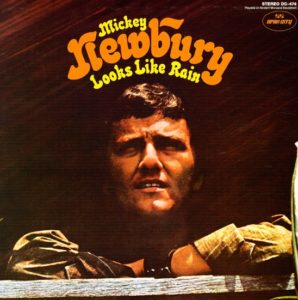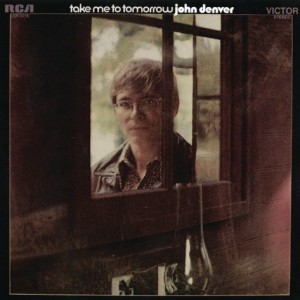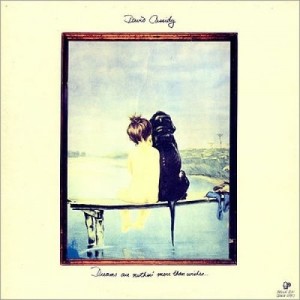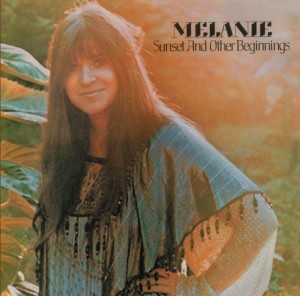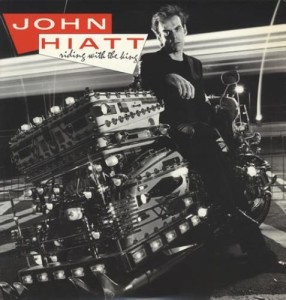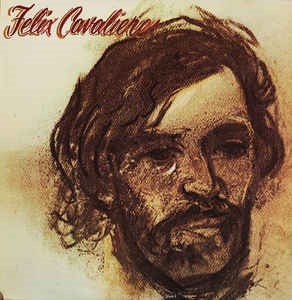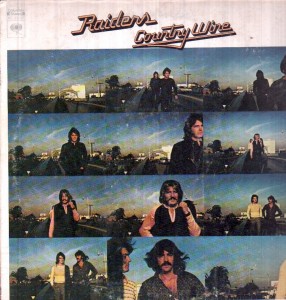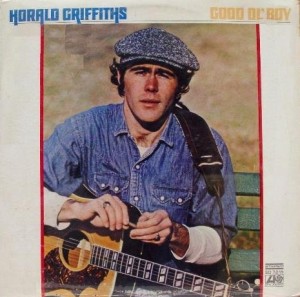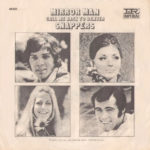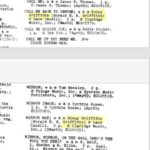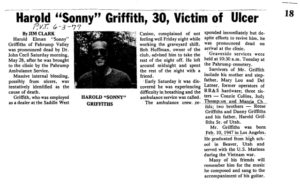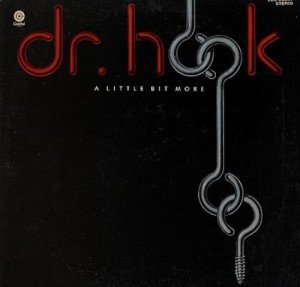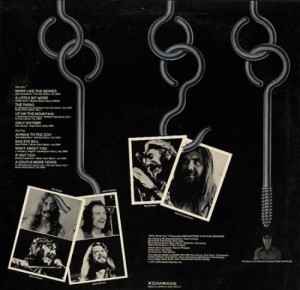Check out my other comments for details and background on Mickey Newbury.
You will need something on background because Mickey isn't a household name even though he was extremely influential as a songwriter.
He wrote songs that were covered by Elvis Presley, Ray Charles, Kenny Rogers, Andy Williams (!), Johnny Cash, Scott Walker, Ray Charles, Joan Baez, Dolly Parton, Tammy Wynette, The Box Tops, Bonnie ‘Prince’ Billy, Nick Cave and others. He has been recorded over 1300 times by more than 1000 performers
Musicians know and love him.
The proof is in the covers. But, what is less discernable but is still there amongst the songwriter musicians is when they take his approach to a song when they write.
Newbury writes lyrics that are incredibly personal. His songs are about loss, love and life stripped bare of bravado. The songs are confessional, naked and sincere. Musically, he always seems to be trying to make sure the music reflects the lyrical content in both rhythm and structure. He is not adverse to using studio tricks or sound affects in his music if that will help create the desired mood in the lyrics.
Newbury wasn't the first person to write personal songs in country. Hank Williams made a career of it in the late 40s and early 50s. Newbury wasn't even the only one doing in the late 1960s, Kris Kristofferson, John Hartford, Buck Owens, and others were doing the same.
Newbury was, perhaps, the most fragile and wounded of the new writers but he was also, perhaps, the least wedded to country sounds even though he embraced his country music history.
He brought post Dylan folky ruminations and a gentle pop sensibility to his country music..
For the purpose of this comment I will refer to something I have said in an earlier comment on this blog:
"It is Newbury's subtlety and thoughtfulness (sic) that put him at the forefront of "progressive country". "Progressive Country" roots lie in traditional country, roots music, folk, Americana, regional rock n roll and was largely comprised of younger country songwriters writing country music with naked honesty, which is no mean feet as country music generally is "nakedly honest" (think Hank Williams, Patsy Cline). What they did do was write incredibly personal songs much like their "singer-songwriter" relatives in the pop field with an ear to the past. The other thing they did was sing their own material regardless of the quality of the voice. Consequently, they have put out many albums and are well respected but their songs are often associated with other singers. Think Townes Van Zandt, Danny O'Keefe, Kris Kristofferson, Willie Nelson, Terry Allen, John Hartford, Billy Joe Shaver, Butch Hancock, Gene Clark, Tom T. Hall, John Prine, Jimmie Dale Gilmore, Guy Clark, Dennis Linde, etc. Some of those artists moved into the more up-tempo "outlaw country" whilst the rest continued on and eventually became the spiritual cornerstones of "alt country" in the 80s and 90s".
I don't move away from that but the more Mickey Newbury I listen to the more Newbury impresses me with his instinctual knowledge of American music. He is Americana, country, singer songwriter, folk, progressive country, old timey, pop and even rock at times. There are hints of all that in his style of music.
This was his second album.
Mickey found success in the late 60s as a songwriter. He was among the hottest new songwriters in Nashville at the time with many writing credits (and hits) to his name. He signed to RCA and recorded (and released) an album he was dissatisfied with ("Harlequin Melodies" (1968) ). The record label had their eyes on commerciality and produced the record accordingly. That album is undervalued – it may not have sounded like what he wanted in his mind but it was still beautiful. Mickey negotiated his way out of his contract with RCA, and signed with Mercury Records on the condition that he got total artistic control. For his second album, this album, he left the mainstream Nashville recording establishment and went to the tiny Cinderella Sound studio in a Nashville garage.
And, there , he was allowed to put down the sound in his head. It may not have been Nashville country commercial but you can hear in Mickey's music The Beach Boys (apparently Mickey admired "Pet Sounds"), Simon and Garfunkel, Scott Walker and others.
The 60s was a time of change both musically and socially. The late 60s seemed to be at crisis point, between incredible achievement and age old strife. Man was landing on the moon, people were marching in Chicago, the Vietnam was ongoing, environmental degradation was becoming obvious.
Society was changing and there was new openness of expression in talking about feelings, politics, society.
Mickey was less interested in the big picture than how people communicate with each other in those changing times. In true country fashion though he had his eye on the past. These people and where they come from form a line where their problems are much the same as the problems of those than preceded them.
Thanks to changing times he was, however, able to discuss those problems in a different way to those musicians before him.
This album is a concept album not in a narrative way but by virtue all the songs are similar in tone. A country concept album, think about it. They were miles ahead of where mainstream country is now.
Admittedly, the album is also of its time. There are psych asides (well, it was 1969) and sound effects that would fit on an easy listening album (rain, wind, train whistles, ghosts)
But, the album is visionary. The listener is drawn into the narrators world. One of uncertainty, a dreamlike hallucinatory emotional landscape where heartbreak, loneliness, madness and despair exist all to the sound of wind chimes and rain.
It's as if you are sitting in a s mall country bar, after hours, on a dark, rainy night and listening to the musician unwinding and playing to himself on the stage.
He was backed on these records by Area Code 615, a group that included the cream of Nashville studio musicians—Charlie McCoy, Jerry Kennedy, Wayne Moss, Kenneth Buttrey, and Farrell Morris — much the same crew who had just backed Bob Dylan on his albums Blonde on Blonde (1966), John Wesley Harding (1967) and Nashville Skyline (1969).
Needless to say songs that evoke moods, stretched to lengths that weren't radio-friendly, are a hard sell. Mercury didn't like or didn't understand what they heard, but they released it Whether the record was pushed or not I don't know but there was little in the way of sales. But there was enough there for Newbury to keep recording and he was picked up by a label known for it adventurousness, Elektra.
Jerry Kennedy and Bob Beckham produced though clearly with Mickey had a hand in there. In any event Kennedy worked with a lot of Nashville renegades and is happy to let them express.
This is not country as you know it but is country and it is a highpoint of country singer songwriter
The liner notes by Kris Kristofferson.
Tracks (best in italics)
Side One
- Write A Song A Song / Angeline – a beautiful song. Like a country version of "Whiter Shade of Pale"
- She Even Woke Me Up To Say Goodbye – The song had been recorded by Jerry lee Lewis in 1969 (#2 Country US) . Jerry Lee nails this and probably does it better though Newbury's woman saying "goodbye" has a different vibe and, probably, different reasons for going. https://en.wikipedia.org/wiki/She_Even_Woke_Me_Up_to_Say_Goodbye
- I Don't Think Much About Her No More – Almost otherworldly with its heavenly chorus and asides.
- T. Total Tommy – a great song. Bouncy on the surface with some undeniably catchy lyrics. Too low key to be a hit but ….
T Total Tommy took a toke of tea
Black cats backin' up a big oak tree
Tick tocks tickin' out a tune on time
Last words lookin' for a line to rhyme
Saw fishs swimmin' in the sea-saw-sea
But me well I'm only lookin'
Side Two
- 33rd Of August / When The Baby In My Lady Gets The Blues – A nine minute song medley. The first part is a narrative disguising the fact that it has something to do with the life of Jesus whilst the second part becomes a slow trad gospel love song. The song messes with your head a little but the mood, and melody is irresistible.
But now I put my dangerous feelings under lock and chain
Guess I killed my violent nature with a smile
Though the demons danced and sung their songs within my fevered brain
Not all my God-like thoughts Lord were defiled
Its the thirty-third of August and I'm finally touchin' down
Eight days from Sunday find me Saturday bound
- San Francisco Mable Joy – a young Georgia farm boy goes to the big city, gets lost and finds comfort in the arms of a prostitute. It ends with loss and one of life's cruel jokes. Magnificent and reminiscent of much Kris Kristofferson and Townes Van Zandt. https://en.wikipedia.org/wiki/San_Francisco_Mabel_Joy
- Looks Like Baby's Gone – a low key type blues type with some nice gentle sitar and a "Sunday Mornin Comin Down" feel.
And …
Wonderful, magnificent …. I'm keeping it.
Chart Action
Nothing no where.
Sounds
Write A Song A Song / Angeline
https://www.youtube.com/watch?v=-jW-bgGPfWU
She Even Woke Me Up To Say Goodbye
Live
https://www.youtube.com/watch?v=UM2PKcLSaYA
I Don't Think Much About Her No More
https://www.youtube.com/watch?v=psxytXGaLNo
T. Total Tommy
https://www.youtube.com/watch?v=lWg4boYuql4
33rd Of August / When The Baby In My Lady Gets The Blues
https://www.youtube.com/watch?v=213l8-qm7Z8
San Francisco Mable Joy
mp3 attached
Looks Like Baby's Gone
https://www.youtube.com/watch?v=Yc3JGMlhh94
Others
https://www.youtube.com/watch?v=RiTjElq5Xjs
https://www.youtube.com/watch?v=HK89Wcanbfk
Review
http://pitchfork.com/reviews/albums/15473-an-american-trilogy/
http://tapeop.com/interviews/83/remastering-and-recreating-mickey-newburys-looks-rain/
http://therisingstorm.net/mickey-newbury-looks-like-rain/
http://www.allmusic.com/album/it-looks-like-rain-mw0000859579
https://en.wikipedia.org/wiki/Looks_Like_Rain
http://www.robertchristgau.com/get_artist.php?name=Mickey+Newbury
Bio
http://en.wikipedia.org/wiki/Mickey_Newbury
http://www.allmusic.com/artist/mickey-newbury-mn0000525789
http://www.soundonsound.com/people/wayne-moss-cinderella-sound-nashville
Website
Trivia
- Personnel: Charlie McCoy – harmonica, guitar, bass pedals / Wayne Moss – guitar / Jerry Kennedy – guitar, sitar / Farrell Morris – percussion / Mickey Newbury – vocals, guitar
- Rain & train sound effects courtesy of Mystic Moods Orchestra (from the LP: One Stormy Night").
- This album is the start of a lose trilogy. Mickey followed this "Frisco Mabel Joy" (1970). The cycle of Cinderella Sound albums ended in 1973 with "Heaven Help The Child". Mickey himself thought of these albums as one piece in concept, theme, music and lyric (though similar elements traverse all his albums). Apparently he said, "“[They] all tie together in my head,” … “Some of the songs refer to the same situation, just looking at it from a four-year difference in time.”
- Mickey would help Townes Van Zandt and other songwriters get started in Nashville, he was Townes' "manager" for a while.

